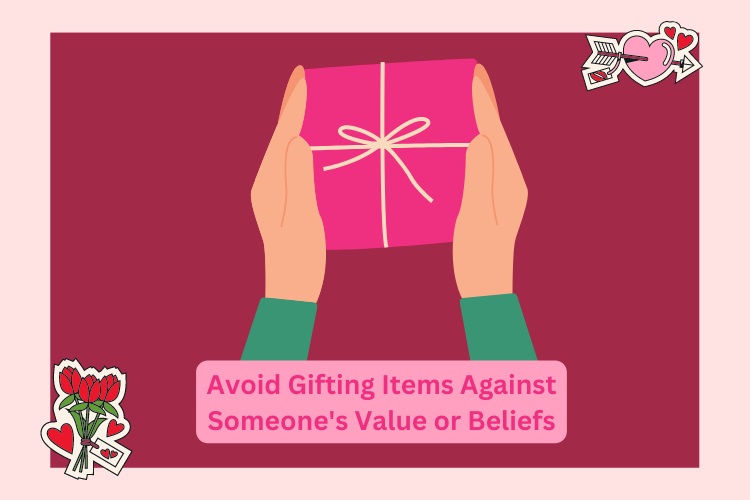It is important to consider your loved one’s preferences and values when choosing a gift. Gifts that are too personal or intimate, expensive or extravagant, cheesy or cliché, boring or practical, or not in line with their beliefs or values should be avoided. Additionally, gift certificates or tickets for events on Valentine’s Day, gifts related to diet or weight loss, or generic or impersonal gifts without a personal touch should also be avoided. Choosing a thoughtful and considerate gift that shows your understanding of your loved one can enhance the relationship and create a positive memory.
1. Cheesy or cliché gifts like teddy bears or cheap chocolates.
Cheesy or cliché gifts like teddy bears or cheap chocolates can be seen as unoriginal and thoughtless. They may not reflect the effort or thought you put into the gift and may not show your partner how much you care about them. Your partner may also view these gifts as impersonal and lacking in effort, especially on a special occasion like Valentine’s Day. It is better to opt for a thoughtful and personalized gift that shows your love and appreciation for your partner. By choosing a gift that truly represents your relationship, you can create a memorable and meaningful moment.
2. Personal items like cologne or perfume unless you are very familiar with their preferences.
Personal items like cologne or perfume can be a sensitive gift as personal preferences vary widely. Unless you are very familiar with your partner’s personal preferences, it is best to avoid gifting these items. The wrong scent or brand can be unpleasant or even offensive, and the recipient may not feel comfortable using the item. Additionally, even if the recipient likes the fragrance, it may not be appropriate to wear it in certain situations. It is better to choose a gift that is more universal, such as a romantic dinner or a personalized keepsake. By showing consideration for your partner’s personal tastes and preferences, you can ensure that your gift is well-received and appreciated.
3. Items that may be considered intimate or personal unless you are in a long-term relationship.
Intimate or personal items can be misinterpreted or offensive, creating awkwardness or discomfort in relationships that are not well-established or serious. It’s best to avoid gifting such items unless you have a close, intimate relationship to avoid causing offence or miscommunication. Gifting items that are intimate or suggestive can make the recipient feel uncomfortable or embarrassed if the relationship is not at a stage where that level of intimacy is appropriate or wanted. It’s important to consider the recipient’s comfort level and preferences before selecting a gift and to avoid gifts that may make the recipient feel awkward or embarrassed. Inappropriate gifts can damage a relationship and undermine the intended sentiment behind the gesture, so it’s best to choose a different type of gift that aligns with the recipient’s taste and comfort level.
4. Gifts that are too expensive or extravagant for your budget.
Gifting expensive or extravagant items can create an imbalance or expectation in the relationship and can put undue financial pressure on you. It’s important to consider your budget and stick to it when selecting gifts, so as to avoid overspending or sending the wrong message.
5. Gift certificates or tickets for an event on Valentine’s Day itself may convey a lack of effort or creativity.
Gift certificates or tickets can seem impersonal and lack the thought and effort that is often expected on a holiday such as Valentine’s Day. It’s important to put effort and thought into gifts to show your affection and convey the sentiment behind the gesture. Gift certificates or tickets may convey a lack of effort or creativity and can detract from the intended message of the gift.
6. Anything practical or boring like household items or white goods.
Practical or boring items such as household goods or white goods can lack sentiment and fail to convey the emotion behind the gift. Holidays such as Valentine’s Day are often associated with romantic gestures and sentimental gifts, so it’s important to choose something that reflects the sentiment and effort behind the gift. Practical or boring gifts can come across as thoughtless or unromantic, so it’s best to avoid these types of gifts for special occasions.
7. A generic or impersonal gift like a plant or bouquet of flowers without any personal touch or message.
Generic or impersonal gifts can lack the thought and effort that is often expected on special occasions like Valentine’s Day. A plant or bouquet of flowers can be a nice gesture, but it’s important to add a personal touch or message to make the gift more meaningful and reflective of the relationship. Personalizing the gift can convey the affection and sentiment behind the gesture and make the gift more memorable and appreciated.
8. Anything related to diet, exercise or weight loss may be perceived as insensitive.
Gifting items related to diet, exercise, or weight loss can be perceived as insensitive, especially if the recipient has struggled with body image issues or feels self-conscious about their weight. This type of gift can come across as critical or judgmental, even if that was not the intention. It’s important to consider the recipient’s feelings and avoid gifts that may make them feel self-conscious or embarrassed. On holidays like Valentine’s Day, it’s best to focus on gifts that promote positivity, self-care, and self-love, rather than gifts that may be perceived as critical or insensitive.
9. Gifts that are not in line with the recipient’s values or beliefs, like leather goods for a vegan.
Gifting items that are not in line with the recipient’s values or beliefs can come across as thoughtless or insensitive and can undermine the sentiment behind the gift. If the recipient holds strong beliefs, such as being a vegan, it’s important to respect and consider those beliefs when selecting a gift. Gifting items that go against those beliefs, such as leather goods for a vegan, can cause discomfort or offence and may damage the relationship. To avoid this, it’s important to consider the recipient’s values and beliefs and choose gifts that align with them.
By avoiding gifting the above-mentioned items, you can extend the life of your relationship with your partner. Let us know what more you think should not be considered as a valentine’s day gift.










